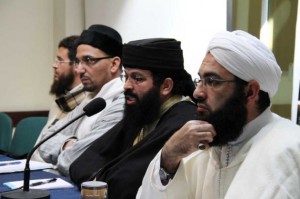Special to WorldTribune.com
CAIRO — Morocco, led by an Islamist government, has begun releasing
Al Qaida-aligned clerics.
The North African kingdom has freed several clerics linked to Al
Qaida, including the suicide bombings in Casablanca in 2003. Officials said
the release was part of a campaign to reconcile with the so-called Salafist
opposition.

“The state is holding out an olive branch to prisoners who have proven and expressed their willingness to make a positive contribution to public life and shun extremism,” Moroccan Justice Minister Mustafa Ramid said.
In February 2012, Morocco’s King Mohammed issued pardons to two clerics linked to Al Qaida. They were identified as Omar Hadouchi and Hassan Ketani, both of whom were later denied entry by neighboring Tunisia.
“Morocco chose to undertake reforms, averting the horrors and tragedies that have occurred in other Arab countries,” Ketani, who had been sentenced to 20 years, said. “Any change can only be done through a comprehensive national reconciliation.”
A third cleric pardoned was identified as Mohammed Abdul Wahab Rafiki, also known as Abu Hafs. Rafiki is said to have been one of the first
Moroccans to fight the Soviet military in Afghanistan in the 1980s.
Officials said Rabat demanded that any Salafist inmate renounce violence
and jihad indoctrination before being eligible for a pardon or early parole.
In 2010, Rafiki announced his support for the renouncement of violence by
Al Qaida-aligned Libyan Islamic Fighting Group. The following year, the
network played a role in ousting the regime of Libyan Col. Moammar Gadhafi.
The royal court has also been encouraging Islamist inmates
to preach non-violence in prisons. Officials pointed to Hassan Khatab,
sentenced to 30 years upon conviction of leading Al Qaida-aligned Ansar
Al Mahdi, and now preaching non-violence to those sentenced for membership
in jihadist cells.
“I never believed in armed action, never promoted it, and never saw it
as a means of change,” Rafiki said.

You must be logged in to post a comment Login